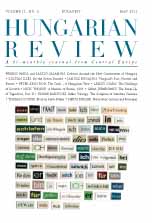HERTA MÜLLER: DEPICTIONS OF DISPLACEMENT
HERTA MÜLLER: DEPICTIONS OF DISPLACEMENT
Author(s): Thomas CooperSubject(s): Literary Texts
Published by: BL Nonprofit Kft
Summary/Abstract: When Herta Müller was awarded the Nobel Prize for literature in 2009 the Nobel Foundation praised her for her power to depict “the landscape of the dispossessed.” Considering the role the Nobel Prize plays in the formation of a canon of world literature, it is perhaps not surprising that the Foundation would use a metaphor implying general significance. Nor is the metaphor inappropriate. Müller’s prose narratives and collage poetry indeed depict a world in which the individual has been deprived not only of personal liberty and political rights, but also history, homeland, and even language. Yet the general relevance of the theme of dispossession in a world of upheavals notwithstanding, the landscape (literal and figurative) of Müller’s works is distinctly Central European. The displacements she has endured, whether as the child of a stiflingly conservative community, a member of a persecuted linguistic minority, a citizen of a repressive dictatorship, or a political refugee in the West, represent personal experiences of the cultural and political ruptures that shaped the history of the region over the course of the 20th century.
Journal: Hungarian Review
- Issue Year: II/2011
- Issue No: 03
- Page Range: 95-99
- Page Count: 5
- Language: English

